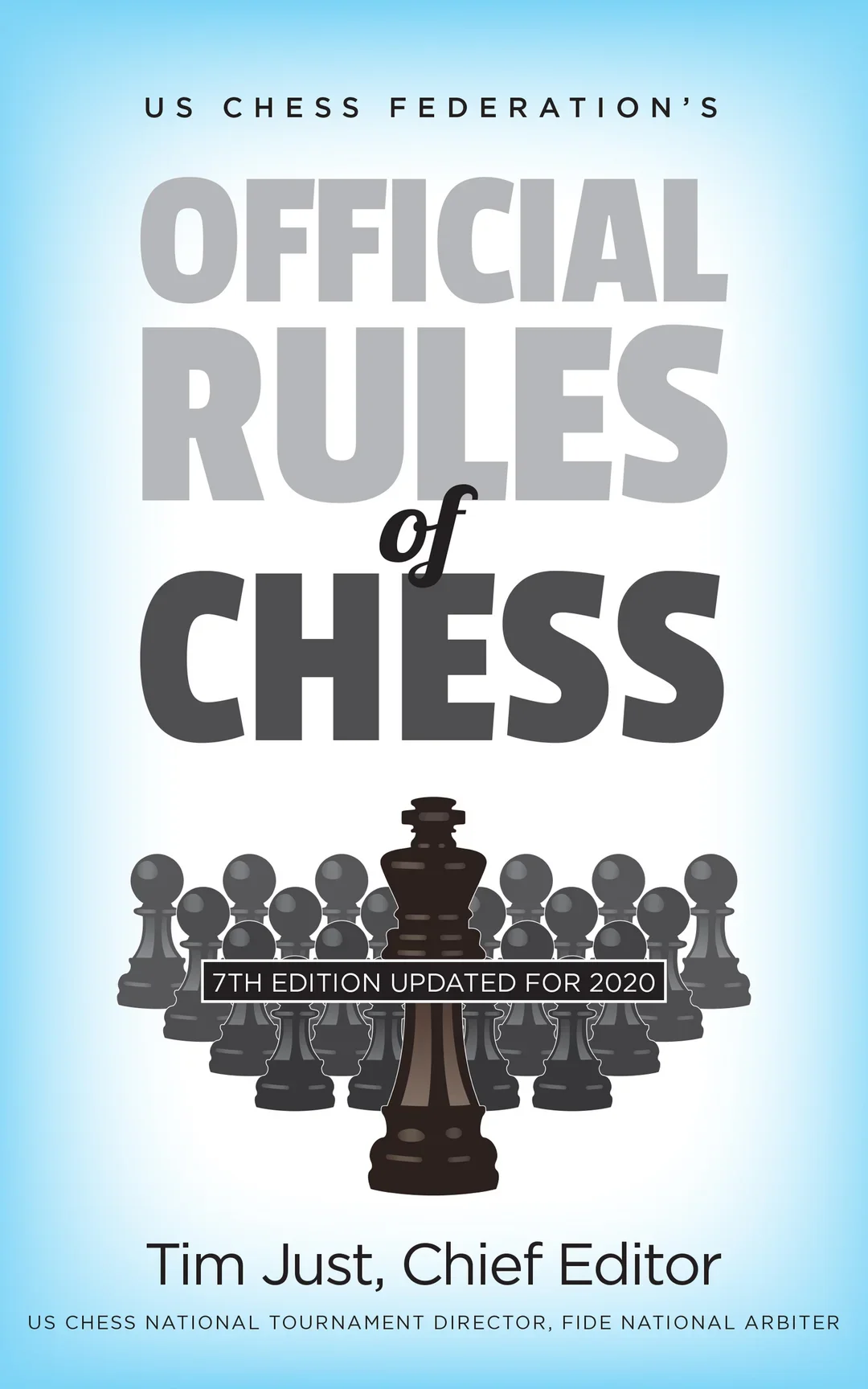When I think of a rumble I think instantly of pro wrestling or West Side Story. Scholastic chess does not come to mind, until recently. In the words of Michael Buffer: “Let’s get ready to rumble!”
THE SETUP: The scholastic community has always had a separate set of rules and regulations for its US Chess National events. This document in its entirety does not appear in the US Chess rulebook. Those National Scholastic contests typically include all sorts of tweakable rules: school team prizes (size and quantity)—a rarity in adult chess tourneys, school team composition, notation (very young children can’t write yet), sections qualifications, team and individual ratings used, etc. Two new far-reaching polices are kicking in during the 2019 – 2020 Scholastic National Chess Tournament season. What was impacted? Let’s take a peek at the new spectator access to the playing area and electronic score keeping device regulations.
SPECTATORS ARE NOW RESTRICTED from the National scholastic playing area.
Why? Noise, crowds, and cheating claims—especially cheating claims.
For as long as there have been National Scholastic tournaments there have been crowd control issues. Besides answering a player’s question or addressing their claim, TDs are charged with also verifying every game result. Allowing spectators near each game, or confining them to the center aisle, often put up physical roadblocks for the TD to maneuver around. Some adult hangers-on even managed to talk well above a whisper while spectating. Numerous warnings and removal from the tournament hall did not substantially dampen the noise. Add to that the increasing number of cheating claims that need to be investigated (spectator involved, technology involved, etc.) and tournament administration has turned into an energy and time draining enterprise; thus, the ban on spectators from the playing area.
Fear and anxiety over cheating far outweigh the actual instances of verified cheating. Yes, some small amount cheating probably occurs, but not as much as we all dread. We all want a level playing field. Check out this tale from the distant pre-technology past:
The top board was front and center on the makeshift platform stage. A demo board behind the scholastic contestants let the spectators follow along in the unfolding drama. Supporters—teammates, coaches, and parents—from both camps had front row seats in the multi rowed seating area in front of the stage. The teammates for one of the wannabe champions complained to the TD that the opponent of their teammate and his dad were cheating—sending signals back and forth. Dad was a master. The TD, himself a master, did some observing. He even checked over the board position. His final ruling was that no cheating was taking place. The opponent was losing badly, so if signals were being passed (something he never could verify) the master-son combo was doing a real bad job. The player’s teammates did not agree with the TD and did their best to block the line of sight between the player and his dad for the rest of the game—creating an entirely different problem for the TD to solve.
ELECTRONIC NOTATION DEVICES ARE NOW BANNED at National Scholastic events.
This ban of all notation devices at National Scholastics may be the Royal Rumble in the scholastic community. Remember that this device ban does not impact the other National tournaments organized by US Chess, just National Scholastics. Organizers of non-national scholastic events—aka adult events, state scholastics, etc.—are also not impacted by this National Scholastic device ban.
Fear of loss is a great motivator. No one likes an unfair contest. No one likes to believe that they are being cheated. Mix those attitudes up and cook them in the “anxiety” oven and you get all sorts of notation device claims: possible hacking, signals sent, signals received, possible installed chess engines, using devices as a second board, etc. These claims can’t be ignored by the event staff. But those claims are burdensome on the staff—too often they don’t have time left for their other duties. Without those devices, the ability to use them to gain a potential edge disappears—as do the cheating claims; thus, electronic notation devices got banned. Players with special needs get a free pass from this regulation—well, if they jump through the “approved for use” hoops. On one side there are those that loudly support the ban. On the other side there are those that just as loudly object to the ban. Both sides have engaged in a back-and-forth contest over and over on the US Chess Forums and on social media. A Royal Rumble indeed?
And before the dawn of notation devices there was this:
In kindergarten sections expecting notate is problematical. The participants typically can’t write yet, let alone take notation. One creative parent knew the value of notating a game. But since his offspring could not yet deal with scoresheets, he came up with a clever solution—videotaping. He set up his equipment near his child’s game and took on the role of cameraman so that he could capture every move on tape. His lens not only recorded every move of the game but also recorded a lot of other players on the surrounding boards. He was very unhappy when the TD had him move out of the playing area—which by the way banned spectators. His efforts were well meaning but capturing other participants on tape created a few perceived legal problems of their own. Additionally, his equipment limited the movement of both players and TDs—plus created a safety hazard. His equipment followed him out the of the playing area. He and his son embraced notation devices when they appeared on the chess tournament scene.
The free, updated as of 1-1-20, US Chess Rules (Chapters 1+2+11 from the 7th edition rulebook) are now downloadable and available on-line. Past “Just the Rules” columns can be viewed here.
Tim Just is a National Tournament Director, FIDE National Arbiter, and editor of the 5th, 6th, and 7th editions of the US Chess Rulebook. He is also the author of My Opponent is Eating a Doughnut & Just Law, which are both available from US Chess Sales and Amazon/Kindle. Additionally, Tim recently revised The Guide To Scholastic Chess, a guide created to help teachers and scholastic organizers who wish to begin, improve, or strengthen their school chess program. Tim is also a member of the US Chess Rules Committee. His new column, exclusive to US Chess, “Just the Rules” will help clarify potentially confusing regulations.
Categories
Archives
- January 2026 (10)
- December 2025 (27)
- November 2025 (29)
- October 2025 (39)
- September 2025 (27)
- August 2025 (29)
- July 2025 (43)
- June 2025 (25)
- May 2025 (24)
- April 2025 (29)
- March 2025 (29)
- February 2025 (20)
- January 2025 (24)
- December 2024 (34)
- November 2024 (18)
- October 2024 (35)
- September 2024 (23)
- August 2024 (27)
- July 2024 (44)
- June 2024 (27)
- May 2024 (31)
- April 2024 (51)
- March 2024 (34)
- February 2024 (25)
- January 2024 (26)
- December 2023 (29)
- November 2023 (26)
- October 2023 (37)
- September 2023 (27)
- August 2023 (37)
- July 2023 (47)
- June 2023 (33)
- May 2023 (37)
- April 2023 (45)
- March 2023 (37)
- February 2023 (28)
- January 2023 (31)
- December 2022 (23)
- November 2022 (32)
- October 2022 (31)
- September 2022 (19)
- August 2022 (39)
- July 2022 (32)
- June 2022 (35)
- May 2022 (21)
- April 2022 (31)
- March 2022 (33)
- February 2022 (21)
- January 2022 (27)
- December 2021 (36)
- November 2021 (34)
- October 2021 (25)
- September 2021 (25)
- August 2021 (41)
- July 2021 (36)
- June 2021 (29)
- May 2021 (29)
- April 2021 (31)
- March 2021 (33)
- February 2021 (28)
- January 2021 (29)
- December 2020 (38)
- November 2020 (40)
- October 2020 (41)
- September 2020 (35)
- August 2020 (38)
- July 2020 (36)
- June 2020 (46)
- May 2020 (42)
- April 2020 (37)
- March 2020 (60)
- February 2020 (38)
- January 2020 (45)
- December 2019 (34)
- November 2019 (35)
- October 2019 (42)
- September 2019 (45)
- August 2019 (56)
- July 2019 (44)
- June 2019 (35)
- May 2019 (40)
- April 2019 (48)
- March 2019 (61)
- February 2019 (39)
- January 2019 (30)
- December 2018 (29)
- November 2018 (51)
- October 2018 (45)
- September 2018 (29)
- August 2018 (49)
- July 2018 (35)
- June 2018 (31)
- May 2018 (39)
- April 2018 (31)
- March 2018 (26)
- February 2018 (33)
- January 2018 (30)
- December 2017 (26)
- November 2017 (24)
- October 2017 (30)
- September 2017 (30)
- August 2017 (31)
- July 2017 (28)
- June 2017 (32)
- May 2017 (26)
- April 2017 (37)
- March 2017 (28)
- February 2017 (30)
- January 2017 (27)
- December 2016 (29)
- November 2016 (24)
- October 2016 (32)
- September 2016 (31)
- August 2016 (27)
- July 2016 (24)
- June 2016 (26)
- May 2016 (19)
- April 2016 (30)
- March 2016 (36)
- February 2016 (28)
- January 2016 (32)
- December 2015 (26)
- November 2015 (23)
- October 2015 (16)
- September 2015 (28)
- August 2015 (28)
- July 2015 (6)
- June 2015 (1)
- May 2015 (2)
- April 2015 (1)
- February 2015 (3)
- January 2015 (1)
- December 2014 (1)
- July 2010 (1)
- October 1991 (1)
- August 1989 (1)
- January 1988 (1)
- December 1983 (1)









